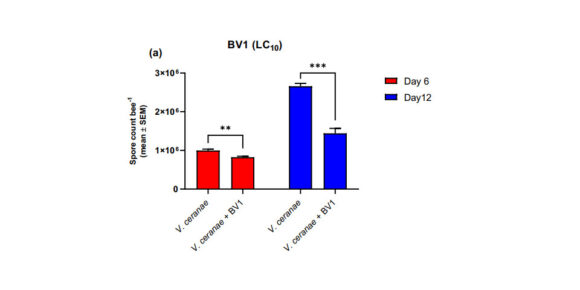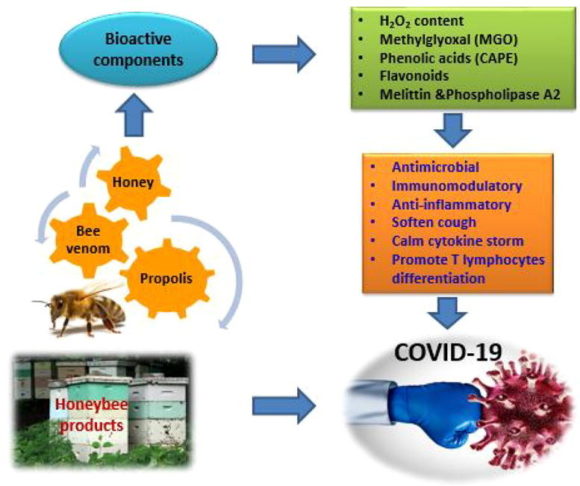Honey bee venom promotes the immune system and reduces Vairimorpha (Nosema) ceranae infection in honey bees (Apis mellifera L.)
Bee venom (BV) extraction has become a standardized practice, characterized by being safe, simple, and causing no harm to bees. Though it demonstrated significant antimicrobial activity, its potential activity against honey bee pathogens have yet to be investigated. Therefore, we investigated for the first time in a controlled laboratory setting the effectiveness of BV administration…









